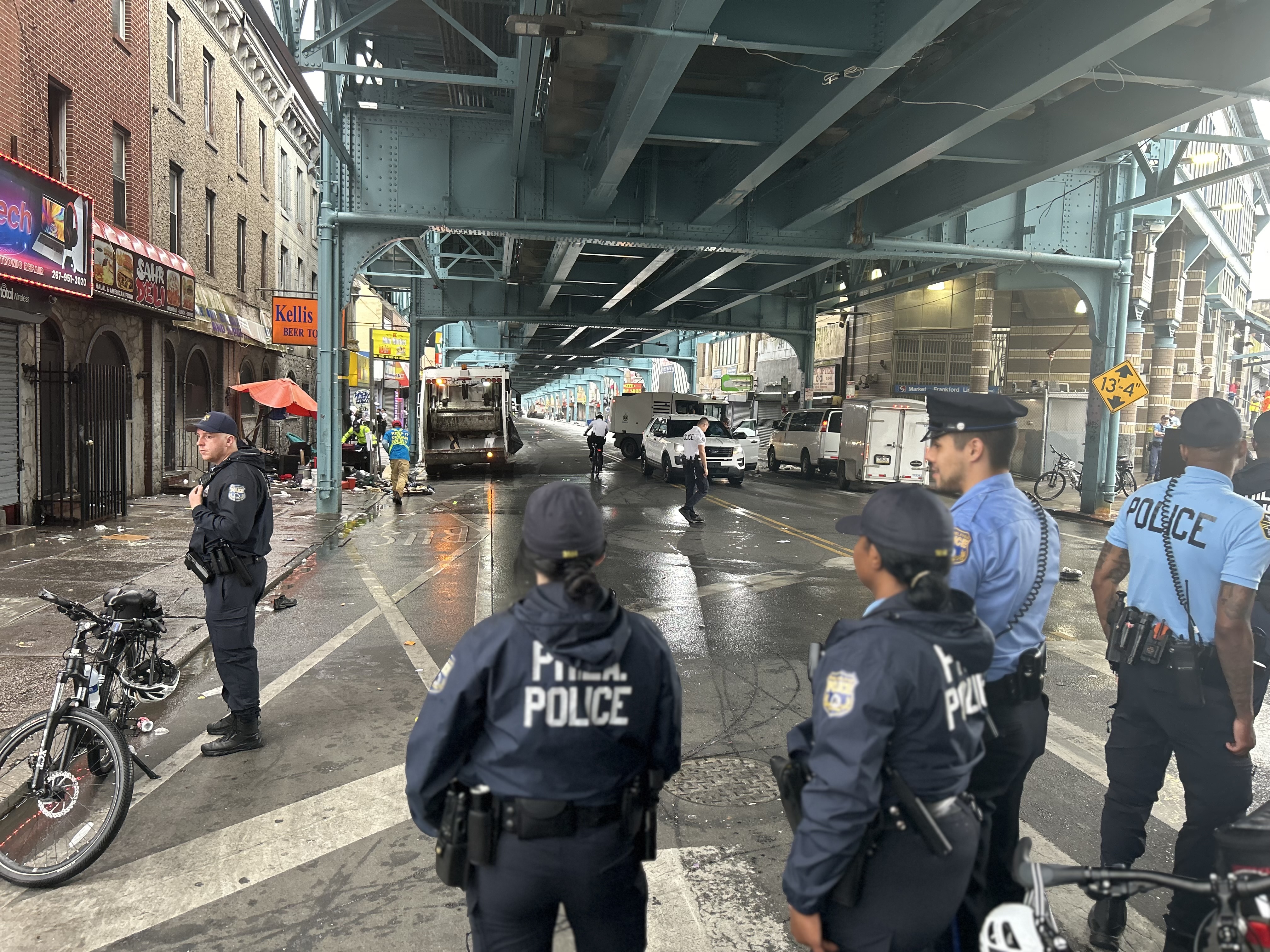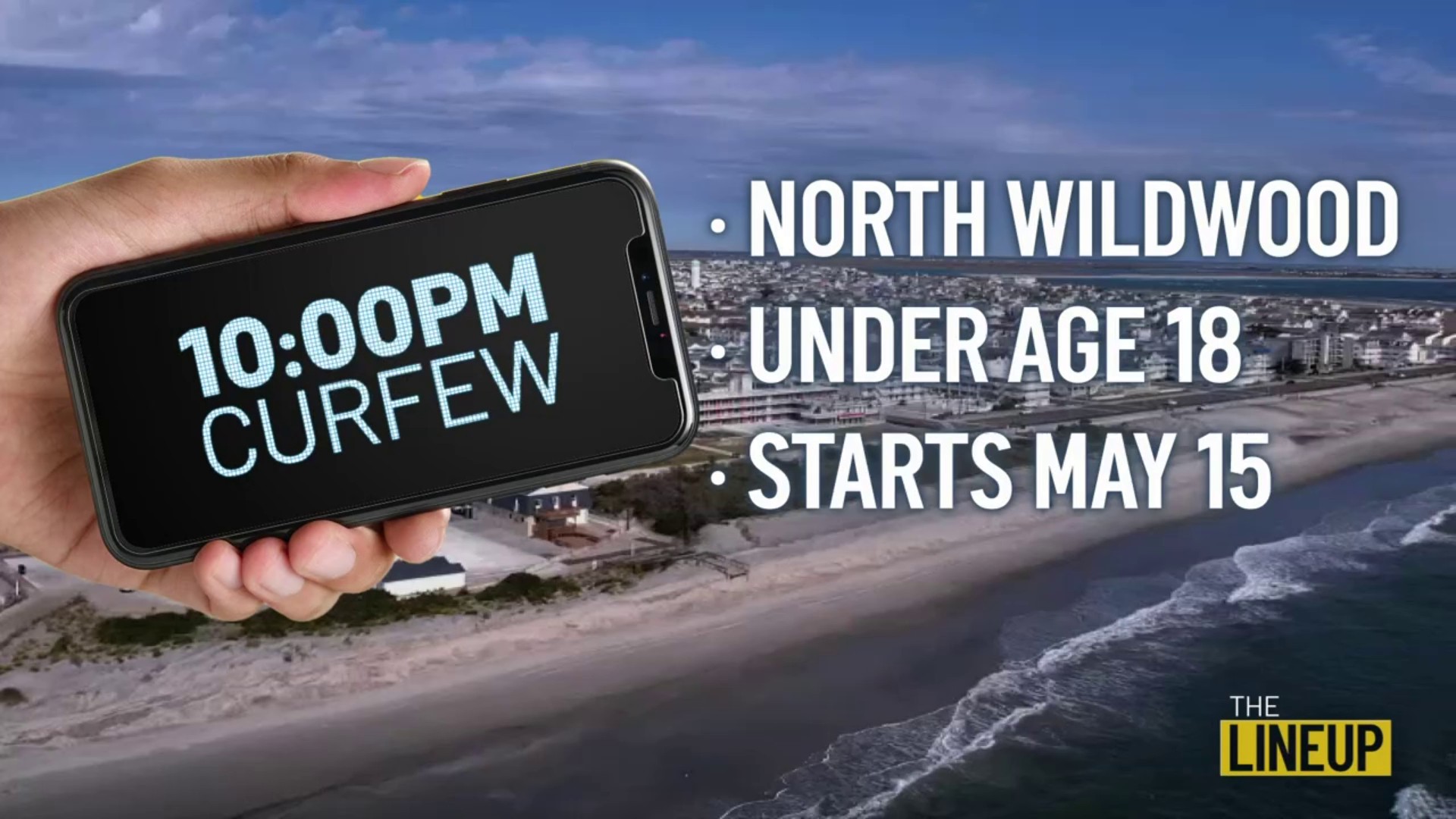What to Know
- On Wednesday and Thursday, approximately 80 asylum seekers – many of whom are from Peru, Ecuador, Honduras, Guatemala and Columbia - traveled by bus from Texas to Philadelphia, officials announced.
- Since November 16 of last year, 23 total buses of migrants have arrived in Philadelphia which has received nearly 1,000 asylum seekers to date, according to officials.
- The new arrivals come with the end of coronavirus restrictions on asylum that have allowed the U.S. to quickly turn back migrants at the U.S.-Mexico border for the past three years. Those restrictions are known as Title 42, because the authority comes from Title 42 of a 1944 public health law allowing curbs on migration in the name of protecting public health.
Several more migrants arrived in Philadelphia a week following the end of Title 42.
On Wednesday and Thursday, approximately 80 asylum seekers – many of whom are from Peru, Ecuador, Honduras, Guatemala and Columbia - traveled by bus from Texas to Philadelphia, officials announced.
All of the migrants were registered at the city’s welcoming facility on E. Luzerne Street in North Philadelphia.
Get Philly local news, weather forecasts, sports and entertainment stories to your inbox. Sign up for NBC Philadelphia newsletters.
The arriving migrants received the following services from the City’s Office of Immigrant Affairs (OIA), the Office of Emergency Management (OEM), the Philadelphia Department of Public Health, non-profit groups and local hospitals:
- Emergency health screening,
- Temporary respite,
- Food and water,
- Legal consultation and orientation,
- Relocation support to other destinations,
- Social services,
- Case management,
- On-site language interpretation.
Philadelphia’s Office of Immigrant Affairs (OIA) and the Philadelphia City Fund also launched the Philadelphia Welcoming Fund to allow residents the opportunity to help welcome immigrants, refugees, and asylum seekers in Philadelphia.
Local
Breaking news and the stories that matter to your neighborhood.
More information on how you can help people seeking asylum in Philadelphia can be found here.
Since November 16 of last year, 23 total buses of migrants have arrived in Philadelphia which has received nearly 1,000 asylum seekers to date, according to officials.
The new arrivals come with the end of coronavirus restrictions on asylum that have allowed the U.S. to quickly turn back migrants at the U.S.-Mexico border for the past three years. Those restrictions are known as Title 42, because the authority comes from Title 42 of a 1944 public health law allowing curbs on migration in the name of protecting public health.
WHAT IS TITLE 42?
Title 42 is the name of an emergency health authority. It was a holdover from President Donald Trump’s administration and began in March 2020. The authority allowed U.S. officials to turn away migrants who came to the U.S.-Mexico border on the grounds of preventing the spread of COVID-19.
Before that, migrants could cross illegally, ask for asylum and be allowed into the U.S. They were then screened and often released to wait out their immigration cases.
Under Title 42, migrants were returned over the border and denied the right to seek asylum. U.S. officials turned away migrants more than 2.8 million times. Families and children traveling alone were exempt.
But there were no real consequences when someone illegally crossed the border. So migrants were able to try again and again to cross, on the off chance they would get into the U.S.
President Joe Biden initially kept Title 42 in place after he took office, then tried to end its use in 2022. Republicans sued, arguing the restrictions were necessary for border security. Courts had kept the rules in place. But the Biden administration announced in January that it was ending national COVID-19 emergencies, and so the border restrictions have now gone away.
Biden has said the new changes are necessary, in part because Congress has not passed immigration reform in decades.
The Title 42 restrictions lifted at 11:59 p.m. on May 11.
The Biden administration has put into place a series of new policies cracking down on illegal crossings. The administration says it’s trying to stop people from paying smuggling operations to make a dangerous and often deadly journey.
Now there will be strict consequences. Migrants caught crossing illegally will not be allowed to return for five years and can face criminal prosecution if they do.



